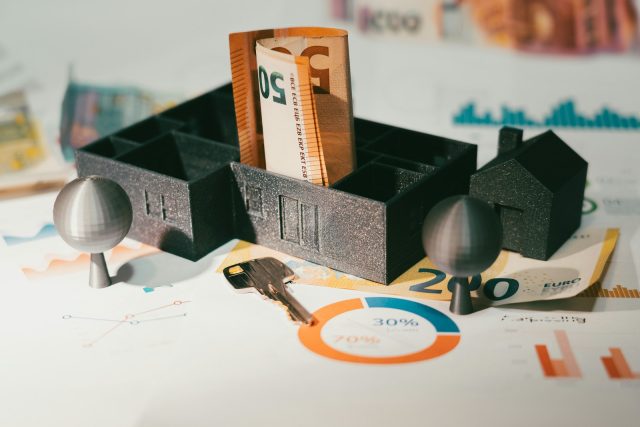
When you think about borrowing money, you probably picture a bank peeking into every detail of your life — your credit score, your income, your spending habits — and judging whether or not you’re “worthy” of a loan. It can feel stressful and even a little unfair, especially if your credit score isn’t where you want it to be. That’s where secured loans come in as a helpful alternative.
A secured loan gives you a way to borrow money by using something you already own as collateral. This could be your car, savings account, or even an investment account. For example, if you’ve ever heard of an auto title loan in Lincoln, Nebraska, that’s a type of secured loan where you use your car title as a guarantee for the money you borrow.
While some people might think offering up collateral sounds risky, it can actually be a smart move if you understand the process and your own financial situation. Let’s break down how to qualify for a secured loan and why it might be an option worth considering.
Understand What Collateral Means
Collateral is basically something valuable that you promise to the lender in case you can’t pay back the loan. It acts as a safety net for them. For you, it can open doors to borrowing money even if your credit score isn’t perfect.
When you pledge collateral, you’re telling the lender, “If I don’t pay, you can take this asset to recover your money.” Because of this, lenders feel more secure and are often more flexible with approval requirements.
Check What You Can Use as Collateral
Before applying for a secured loan, figure out what you have that can be used as collateral. Common options include cars (as in an auto title loan in Lincoln, Nebraska), savings accounts, certificates of deposit (CDs), or investment accounts.
The value of your collateral will usually determine how much you can borrow. For example, if your car is worth $10,000, you might be able to borrow up to that amount, depending on the lender’s terms and how much risk they’re willing to take.
Know Your Collateral’s Value
It’s important to know the current value of whatever you’re offering. If you’re using a vehicle, get it appraised or look up its value online through trusted car valuation websites. For savings or investments, check your statements to see the exact balance.
Knowing this information before talking to a lender helps you set realistic expectations about how much you can borrow and keeps you from being surprised later.
Understand the Lender’s Requirements
Even though secured loans can be easier to qualify for than unsecured loans, lenders still have certain requirements. These can include proof of income, identification, and documents showing ownership of the collateral.
For example, if you’re applying for an auto title loan in Lincoln, Nebraska, you’ll need to provide the car title, proof of insurance, and usually a government-issued ID. Some lenders might also ask for recent photos of the vehicle or a physical inspection.
Don’t Ignore Your Credit Score Completely
While it’s true that secured loans are more forgiving when it comes to credit scores, lenders still look at your credit history to decide on interest rates and terms. A lower score might not stop you from qualifying, but it could mean you pay a higher interest rate.
If possible, take some time to improve your credit before applying. Paying off small debts or making sure your credit report is accurate can help you qualify for better terms and save money over time.
Plan Your Repayment Strategy
Before you sign anything, make sure you have a clear plan for how you’ll pay back the loan. Because your asset is on the line, missing payments isn’t just about paying a late fee — you could lose your car or other valuable property.
Set up a budget that includes your monthly payment and look at your income to make sure it’s realistic. Automatic payments can also help you avoid missing due dates and protect your collateral.
Consider the Risks and Rewards
A secured loan can be a great option if you need cash and have valuable collateral. The main benefit is that it’s often easier to get approved and may offer lower interest rates than unsecured loans.
But there’s a major risk: if you can’t keep up with payments, you could lose something important to you. Always weigh this carefully. Make sure the loan serves a real need — like consolidating higher-interest debts or covering an emergency — rather than just funding unnecessary purchases.
Shop Around for the Best Deal
Not all secured loans are created equal. Different lenders offer different interest rates, fees, and repayment terms. Take your time to compare options and read the fine print.
Ask questions like: What happens if I pay off early? Are there penalties? What exactly happens if I default? The more you know upfront, the fewer surprises you’ll have later.
Final Thoughts
Qualifying for a secured loan is all about preparation and understanding what you’re offering as collateral. Whether you’re considering an auto title loan in Lincoln, Nebraska, or using your savings account to back a loan, knowing the value of your asset and having a solid repayment plan is key.
A secured loan isn’t a free pass to easy money — it’s a financial tool that should be used carefully and thoughtfully. With the right approach, it can help you reach important goals without getting trapped in high-interest debt.
So take your time, ask questions, and make sure your decision supports your long-term financial health. After all, your assets are valuable — both to your future and to the lender — so protect them wisely.







